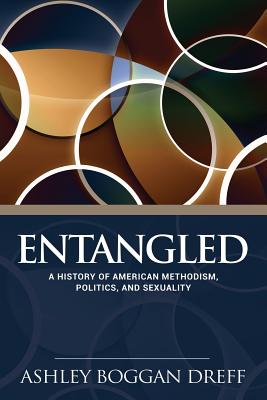Entangled: A History of American Methodism, Politics, and Sexuality

Entangled: A History of American Methodism, Politics, and Sexuality
This book maps how American Methodists have responded to sexual change since World War II. It argues that the current United Methodist impasse over human sexuality has its root in the existence of two dichotomous ideologies of Methodist history and theology--one liberal and one evangelical, which come to the foreground in discussions of human sexuality. It offers evidence about how these ideologies have sought to reconcile their sexual ethic with sexual change since the birth control movement of the 1920s. In post-WWII America, most Methodists upheld a limited notion of family life and sexuality, one that allowed for the use of artificial contraception within marriage and for divorce. In response to the sexual revolution, liberal-leaning Methodists upheld a new sexual ethic, "the new morality," which peaked with radical new approaches to sex education, a full endorsement of abortion rights, and support of the homophile movement. However, "the new morality" coincided with an increased presence of and a new voice for evangelical Methodists, Charles Keysor and the Good News Movement. Evangelical Methodists critiqued "the new morality" as value-neutral and anti-Scripture. The evangelical desire for a rules-based morality solely reliant on Scripture collided with "the new morality" and led to intense debates over sex education, abortion, and the inclusion of LGBTQ persons within the United Methodist denomination from the 1970s onward. Since 1972, United Methodists have continually debated "human sexuality" at each General Conference, primarily through the advocacy efforts of political caucus groups. This author hopes that an historical examination of how Methodists have confronted sexual change will enlighten current conversations about human sexuality.
PRP: 264.47 Lei
Acesta este Prețul Recomandat de Producător. Prețul de vânzare al produsului este afișat mai jos.
238.02Lei
238.02Lei
264.47 LeiIndisponibil
Descrierea produsului
This book maps how American Methodists have responded to sexual change since World War II. It argues that the current United Methodist impasse over human sexuality has its root in the existence of two dichotomous ideologies of Methodist history and theology--one liberal and one evangelical, which come to the foreground in discussions of human sexuality. It offers evidence about how these ideologies have sought to reconcile their sexual ethic with sexual change since the birth control movement of the 1920s. In post-WWII America, most Methodists upheld a limited notion of family life and sexuality, one that allowed for the use of artificial contraception within marriage and for divorce. In response to the sexual revolution, liberal-leaning Methodists upheld a new sexual ethic, "the new morality," which peaked with radical new approaches to sex education, a full endorsement of abortion rights, and support of the homophile movement. However, "the new morality" coincided with an increased presence of and a new voice for evangelical Methodists, Charles Keysor and the Good News Movement. Evangelical Methodists critiqued "the new morality" as value-neutral and anti-Scripture. The evangelical desire for a rules-based morality solely reliant on Scripture collided with "the new morality" and led to intense debates over sex education, abortion, and the inclusion of LGBTQ persons within the United Methodist denomination from the 1970s onward. Since 1972, United Methodists have continually debated "human sexuality" at each General Conference, primarily through the advocacy efforts of political caucus groups. This author hopes that an historical examination of how Methodists have confronted sexual change will enlighten current conversations about human sexuality.
Detaliile produsului










